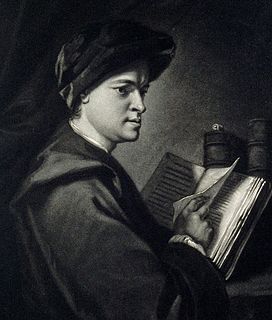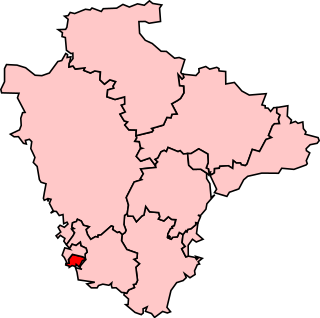
John Mudge was an English physician and amateur creator of telescope mirrors. He won the Copley Medal in 1777 for a paper on reflecting telescopes.

Plymstock is a commuter suburb of Plymouth and former civil parish in the English county of Devon.

South West Devon is a constituency represented in the House of Commons of the UK Parliament since 1997 by Gary Streeter, a Conservative.

Plymouth, Sutton was, from 1918 until 2010, a borough constituency represented in the House of Commons of the Parliament of the United Kingdom. It elected one Member of Parliament (MP) by the first past the post system of election.
Plymstock School is a state comprehensive secondary school in Plymstock, a suburb of Plymouth, Devon, England. It was the first West Devon comprehensive school and is now a Specialist Sports College. As of January 2011 it has 1,626 students, of whom 240 are in the sixth form. In April 2011, the school became an academy.

Edward Charles Baring, 1st Baron Revelstoke, was a British banker.
The A374 is a main road in the United Kingdom, one of six A-roads making the border crossing between Devon and Cornwall. It is the most southerly of the A37x group of roads, starting and ending its journey with the A38 trunk road, from the outskirts of Plymouth in Devon to the Trerulefoot roundabout in Cornwall.

Kenneth James Foster was the Lord Mayor for the city of Plymouth in Devon, England from May 2009 to May 2010. Prior to the post he worked in the dockyard and later a councillor for Plymstock Radford.
John Harris (1596–1648) of Lanrest in Cornwall and of Radford in the parish of Plymstock in Devon, was an English gentleman who was elected four times as a Member of Parliament for Liskeard in Cornwall, between 1628 and 1644. He supported the Royalist side in the Civil War.
John Harris was an English politician who sat in the House of Commons from 1661 to 1677.

Christopher Harris of Lanrest in the parish of Liskeard in Cornwall, was a Member of Parliament for West Looe in Cornwall (1621). He should not be confused with his great-uncle Christopher Harris (c.1553-1625) of Radford in the parish of Plymstock in Devon, MP for Plymouth in 1584, whose heir apparent he was.

William Harris, of Radford in the parish of Plymstock in Devon, was a Member of Parliament for Newport-juxta-Launceston in Cornwall.
The Armada Service is a set of more than 31 gilded silver dishes, dated between 1581 and 1601, formerly owned by Sir Christopher Harris, MP, of Radford House in the parish of Plymstock in Devon, England. Twenty-six of these dishes are now in the collection of the British Museum in London.

John Crocker Bulteel (1793–1843) of Fleet, Holbeton, in South Devon, was a Whig MP for South Devon 1832-4 and was Sheriff of Devon in 1841. He was Master of the Dartmoor Foxhounds and bred the finest pack of hounds in England.
Henry Bellenden Bulteel was an English priest with radical opinions. He studied at the University of Oxford and became an Anglican curate in Oxford. He adopted High Calvinist opinions, and in 1831 gave a polemic sermon before the university in which he questioned received opinions on free will and salvation, and criticised the university and the Church of England for ignoring the principles of their faith and appointing unsuitable clergy in response to political influence. He then went on an outdoor preaching tour, and as a result was ejected from the Church of England. He formed his own nonconformist church and flirted with Irving's Catholic Apostolic Church before setting up a Strict Baptist chapel.

Membland is an historic estate in the parish of Newton and Noss, Devon, situated about 8 miles south-east of the centre of Plymouth. The estate was purchased in about 1877 by Edward Baring, 1st Baron Revelstoke (1828–1897), senior partner of Barings Bank, who rebuilt the mansion house known as Membland Hall. He suffered financial troubles and in 1899 the estate and Hall were sold to a property developer. A year later Membland was sold to ship builder William Cresswell Gray. The house became derelict after World War I and was demolished in 1927. Several of the estate's service buildings survive, including the Bull and Bear gatekeeper's lodge, stables, gasworks, forge and laundry. On the site of the house a smaller dwelling was built between 1966-8.
Flete in the parish of Holbeton in Devon is an historic manor. In 1810 it was called "one of the finest estates in the county of Devon". The present manor house known as Flete House was built in the 19th century incorporating some elements of an earlier Tudor house on the site.

The Devon and Cornwall Bank was a bank which operated in the Westcountry of England between 1832 and 1906, when it was taken-over by Lloyds Bank.













